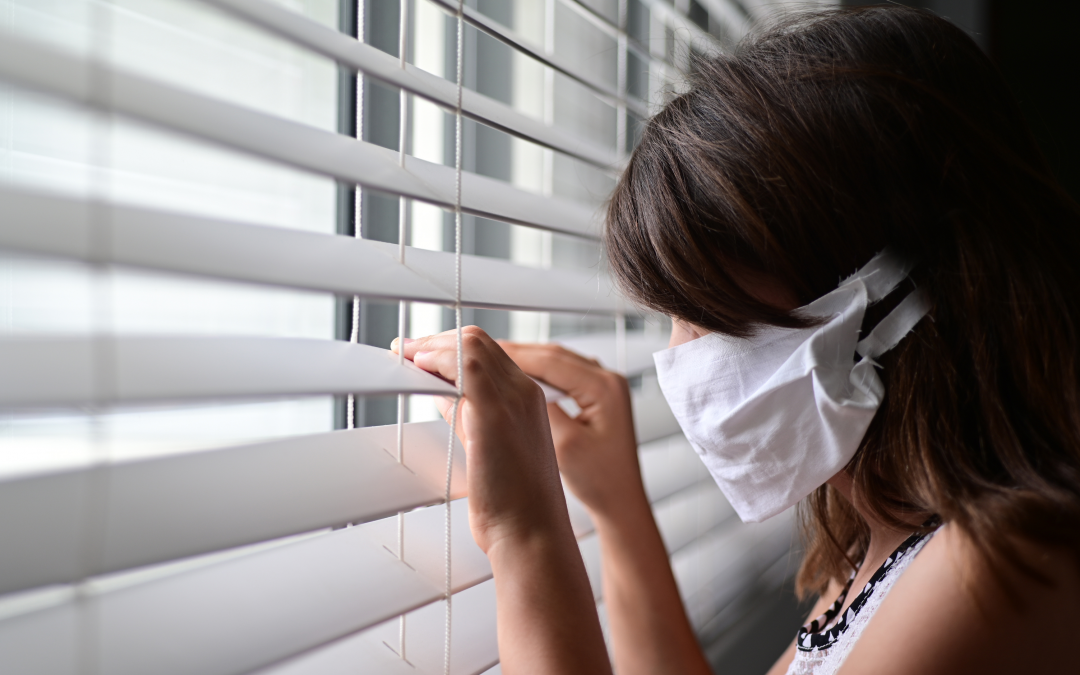Staying at home for extended periods of time, also known as “cabin fever”, can feel like entrapment. Especially true for those accustomed to a hyper-connected lifestyle, quarantining can be detrimental to one’s well-being. Not being able to attend a dance class in person, visit a pub, or needing to cancel vacation plans can agitate feelings of powerlessness; even more so for some of those less fortunate, as the need to escape this new reality is all too real. The emotions many of us are experiencing in quarantine can be described as “cabin fever,” a term coined to capture the feelings of staying inside too long with little to no stimulus.
Though cabin fever is not an official psychological disorder, the feelings that it describes are. A shifted lifestyle can foment into deep feelings of isolation, anxiety, and even depression. As we continue to support those who risk their lives every day on the front lines, managing our mental health during quarantine is an equal imperative while we do our part to stay indoors.
As we learn to adjust to the new normal, it’s important to identify the feelings that quarantine can bring. While for some, this can be a time of self-improvement and reflection, others are not as fortunate. With higher rates of alcoholism and domestic abuse, a lack of resources and jobs for many across the globe, and the overall fear of infection and inadequate information available, staying positive while stuck indoors waiting for a cure or vaccine to COVID-19 is more than difficult. The stress and pressure that can build when one’s normal coping mechanisms are impeded is oftentimes challenging, putting us in unfamiliar territory.
If humanity is one thing, however, it is resilient. This resilience stems from self-understanding, learning and accepting the new situation, and adapting to once again find some sort of control, no matter how minimal. Recognizing the feelings that isolation can bring is the first step in mitigating these sentiments. For some, creating a routine for a sense of normalcy helps, including exercise or yoga, cleaning and organizing, regular virtual socialization, etc. Finding small, personal ways to be productive throughout the day can help distract and lessen the intensity of the feelings that quarantine can cause. This is uncharted territory for families and individuals across the globe, from working remotely and supporting home learning, to navigating the new and ever-changing social norms, supports, and restrictions. It is important for you to remember that there is no one right way to handle this experience and that some days will look better than others, and that is okay.
Please know, if you are feeling the effects of cabin fever and all the serious emotional trauma it can bring, you are not alone. This is a global phenomenon, and there are resources if you need them to help you manage your emotions as well as support systems in place for you to seek help. In these trying times, it’s important to find your own sense of resilience, to recognize that you’re not alone, and to know that this too shall pass.
- Dr. Hope
About CSOFT Health Sciences
CSOFT Health Sciences provides end-to-end medical translations for all phases of the product lifecycle, from pre-clinical to post-launch. We also specialize in market access consulting and CTD/eCTD submissions with the FDA, EMA, and NMPA. Our operations are compliant with ISO 17100 and certified in ISO 9001:2015 and ISO 13485:2016, ensuring our customized solutions meet the rigorous regulatory requirements of global submissions.
About CSOFT
CSOFT International is a leading provider of cross-border communications for enterprises seeking growth in global markets. Our expertise in localization, documentation, and branding encompasses a full range of end-to-end content and consulting services that we deliver in over 250 languages. With a focus in health sciences and smart technology, we work closely with our clients to deliver precision solutions to the challenges of engaging markets, consumers, and regulatory environments worldwide.
Dr. Hope is a fictitious CSOFT Health Sciences contributor who provides insightful, factual, and relevant explanations. Sometimes historical, other times philosophical, and generally related to the scientific interest and well-being of society, Dr. Hope provides commentary, inspiration and hope to readers thinking about health in the big-picture. You should not rely on this information as a substitute for, nor does it replace, professional medical advice, diagnosis, or treatment.
